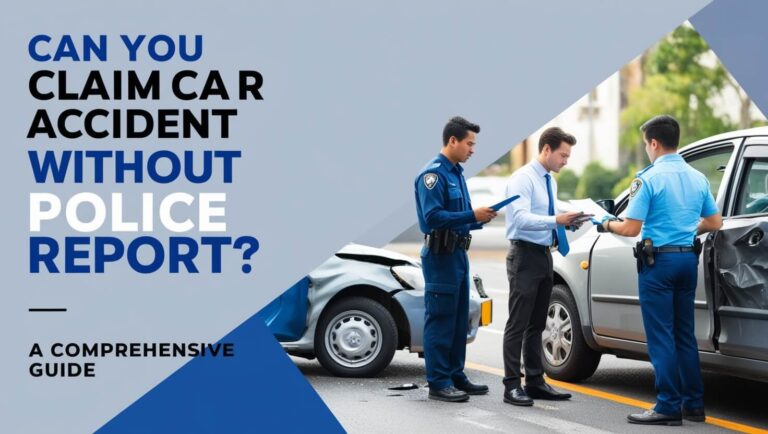How Long Does a Police Report Take? A Comprehensive Guide

After an accident or incident, you might wonder: how long does a police report take? The answer varies, but typically, police reports take anywhere from 3 to 5 business days to complete. However, this timeframe can extend to several weeks depending on various factors.
Police reports play a crucial role in documenting incidents and can significantly impact insurance claims and legal proceedings. This guide dives into the ins and outs of police report timelines, helping you understand what to expect and how to navigate the process effectively.
The Basics of Police Reports
What is a police report?
A police report is an official document created by law enforcement officers after responding to an incident. It contains vital information about what happened, including:
- Date, time, and location of the incident
- Names and contact details of those involved
- Witness statements
- Officer observations
- Any citations issued
These reports serve as an objective record of events, crucial for both legal and insurance purposes.
Why are police reports important?
Police reports hold significant weight for several reasons:
- Legal evidence: They provide an official account of incidents for court proceedings.
- Insurance claims: Reports help insurance companies process claims more efficiently.
- Public records: They contribute to crime statistics and community safety planning.
- Personal documentation: Individuals can use reports to support their version of events.
Types of incidents requiring police reports
Various situations call for police reports:
- Traffic accidents
- Property crimes (theft, vandalism)
- Violent crimes (assault, robbery)
- Missing persons
- Domestic disputes
- Suspicious activities
Knowing when to file a report can make a big difference in resolving issues down the line.
Factors Affecting Police Report Timelines
Several elements influence how long a police report takes to complete:
Complexity of the case
Not all incidents are created equal. A simple fender bender might result in a quick report, while a multi-vehicle collision with injuries could take much longer to document thoroughly.
Jurisdiction and agency procedures
Different police departments have varying protocols and resources. A small-town force might process reports faster than a busy urban precinct swamped with cases.
Availability of evidence and witnesses
Gathering statements and collecting evidence takes time. If witnesses are hard to reach or evidence is complex to analyze, it can delay the report’s completion.
Workload of the responding officers
Police officers juggle multiple responsibilities. High call volumes or staffing shortages can impact how quickly they can finalize reports.
Average Timeframes for Police Reports
While timelines vary, here’s a general idea of what to expect:
Typical processing times
Most police departments aim to complete reports within 3 to 5 business days. This timeframe allows officers to gather necessary information and review their findings.
Variations by incident type
- Minor accidents: 1-3 days
- Property crimes: 3-7 days
- Violent crimes: 7-14 days or more
- Complex cases: Several weeks to months
Best-case and worst-case scenarios
In some instances, officers might complete a report on the spot for simple incidents. On the flip side, major crimes or accidents involving fatalities can take weeks or even months to fully document.
The Police Report Process: Step by Step
Understanding the process can help you gauge how long your police report might take:
Initial response and information gathering
- Officers arrive at the scene
- They assess the situation and ensure safety
- Collect statements from involved parties and witnesses
- Document physical evidence and take photographs
Report writing and review
- Officer compiles information into a structured report
- Supervisor reviews the report for accuracy and completeness
- Any necessary revisions or additional information is added
Administrative processing and filing
- Report is entered into the department’s system
- Copies are made available for involved parties
- Report is filed and stored according to department policies
This process typically spans several days, explaining why reports aren’t instantly available.
Expediting Your Police Report
While you can’t rush the official process, you can take steps to help things move along:
Tips for faster report completion
- Provide clear, concise information at the scene
- Offer contact details for any witnesses
- Follow up promptly if the officer requests additional information
- Be patient but persistent in checking on the report’s status
When to follow up on your report
If you haven’t heard anything after a week, it’s reasonable to contact the department for an update. Be polite and understand that officers are often juggling multiple cases.
Understanding priority cases
Some reports take precedence due to their nature:
- Violent crimes
- Cases with pending court dates
- Incidents involving minors or vulnerable adults
If your case falls into a priority category, mention this when following up.
Accessing Your Completed Police Report
Once your report is ready, here’s how to get your hands on it:
Methods to obtain your report
- In-person at the police station
- Online through the department’s website
- By mail (usually requires a written request)
- Through your attorney, if you’ve hired one
Costs associated with obtaining reports
Fees vary by department but typically range from $5 to $25 for a copy of your report. Some agencies offer free copies to involved parties.
Timeframes for report availability
Most departments make reports available within 5-7 business days after completion. However, for complex cases or ongoing investigations, this could take longer.
Special Circumstances Affecting Report Timelines
Certain situations can significantly extend how long a police report takes:
Major accidents and fatalities
These cases often require extensive investigation, including accident reconstruction and toxicology reports, which can delay the final report by weeks or months.
Ongoing criminal investigations
If your incident is part of a larger criminal case, the report might be held back until the investigation concludes to protect sensitive information.
Multi-jurisdictional incidents
When multiple law enforcement agencies are involved, coordinating information can slow down the reporting process.
The Role of Technology in Police Reporting
Advancements in tech are changing how reports are created and processed:
Digital reporting systems
Many departments now use electronic systems for report writing, which can speed up the process and reduce errors.
Impact on processing times
Digital systems often allow for faster review and filing, potentially reducing overall report completion times.
Future trends in police report efficiency
Emerging technologies like AI-assisted report writing and mobile reporting tools promise to further streamline the process in coming years.
Legal Considerations and Police Reports
Understanding the legal aspects of police reports is crucial:
Police reports in court proceedings
While often used as references, police reports are generally considered hearsay in court. Officers may be called to testify about their observations instead.
Challenging inaccurate reports
If you believe a report contains errors, most departments have procedures for requesting amendments. Act quickly, as there may be time limits for making such requests.
Privacy and confidentiality issues
Police reports often contain sensitive information. Departments must balance public record laws with privacy concerns when releasing reports.
FAQs About Police Report Timelines
Let’s address some common questions:
Q: Can I get a copy of my police report immediately after an incident? A: Usually not. Reports take time to process and review before they’re made available.
Q: Will the officer give me a case number at the scene? A: Yes, in most cases. This number is crucial for following up on your report.
Q: How long does a police report take for a car accident? A: Typically 3-5 business days, but it can take longer for complex accidents or those involving injuries.
Q: Can I file a police report days after an incident? A: Yes, but it’s best to report incidents as soon as possible while memories are fresh and evidence is more readily available.
Q: Do all police reports go on public record? A: Not necessarily. Some reports, especially those involving minors or ongoing investigations, may have restricted access.
Conclusion: Understanding the Police Report Timeline
The time it takes to get a police report can vary widely, from a few days to several weeks. Factors like case complexity, department workload, and special circumstances all play a role in determining how long your report will take.
Remember, while waiting for a report can be frustrating, the process ensures accuracy and thoroughness. Stay patient, follow up when appropriate, and don’t hesitate to ask questions if you’re unsure about the status of your report.
By understanding the factors that influence police report timelines, you can navigate the process more effectively and set realistic expectations. Whether you’re dealing with a minor incident or a more serious situation, knowing what to expect can help reduce stress and ensure you have the documentation you need for insurance claims or legal proceedings.






